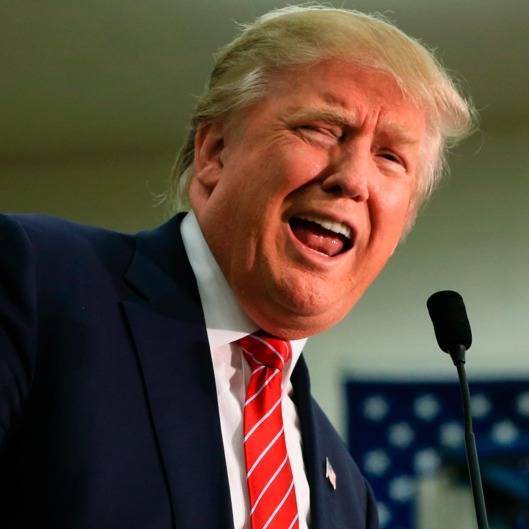How far is too far? At what point does rule of law become an infringement on one’s civil liberties? How far is freedom of speech all right? On the one hand there’s the ghastly spectacle of the American presidential race—the unabated horror that is Donald Trump, who has been terrorizing the world for decades but now stands a chance to become the ‘leader of the free world’ (as they like to put it). The fact that such a morally and ethically corrupt, foul-mouthed misogynist even has a chance at winning the presidency is the stuff of nightmares, let alone the possibility that he might win. But there’s America for you: if you get the votes, you can win. You have a chance, because their government makes it so. The same framework that made it possible for Barack Obama, black son of a single mother, to be president makes it possible for Donald Trump, World-Class Halfwit, to at least try. It’s equality, one has to grudgingly admit.
Then there’s France and the burkini ban. Their government has certain rules, and one of them is that they don’t allow burkinis—a swimsuit that covers a lady from head to foot in what is really a wetsuit with a hood—at their beaches. Nigella Lawson’s penchant for them notwithstanding, 99 percent of women who wear burkinis are Muslim. The ban has invited a great deal of criticism, of course, because who is the state to tell anyone what they can or cannot wear? Be it the French or the Iranis or the Saudis, no government should have the right to dictate how one should conduct one’s life. It is private, and should remain so.
But therein lies the rub: my freedom ends where your nose begins. Which means our concept of liberty is limited, because while we may think we exist in individuality, we don’t. We operate within a complex web of social observances, expectations and internalizations. If I were an ordinary Frenchwoman I might find burkinis offensive—to me they could represent a conservatism that has been made to be synonymous with terrorism, and the way we at home perceive raised shalwars and turbans on young men with a certain wariness, the burkini is viewed in the same way. Is it too much to ask someone to perhaps repair to another beach, or swim in private if they are worried about exposure in public places?
It shouldn’t always be. We all live by certain ideologies, but to expect the world to conform to those is asking too much of it. Each state rules by its own law, and citizens are expected to abide by them. This is the Socratic view of it: that if you benefit from what the state provides you, then you are in turn part of an unspoken social contract that compels you to obey the writ of that state. Everyone must obey for the system to properly work. We understand that a red light means stop. We are expected to stop. When we stop, we allow the other person to proceed at their green light. This is how we come to trust the system, and when everyone follows the system everyone benefits. Socrates was sentenced to death by the Athenian state for giving young Athenians all the Wrong Ideas. Socrates was implored by friends and well-wishers to flee Athens, but he refused: the law of the state was supreme, and as an Athenian he was bound by it.
So what do you do when the state is oppressive? What about change? The key is fairness. You try and change what is unjust (no state is perfect) and for the rest you find alternatives. If you don’t like the fact that a man cuts hair in the salon you visit, go to another one. Mixed salons are not an infringement of your rights. If you don’t want to wear a swimsuit in public, don’t go to the beach to swim, go to a private pool. If you’re a medical health professional who doesn’t want to work with women, hire male nurses and don’t be a gynaecologist. The problem is conflating what you perceive to be your rights as an individual with the rights given to you by the state. The state doesn’t disallow co-ed schools. Girls and boys are free to study together. If you don’t like it, then send your children to single-sex schools by all means, but don’t confuse your personal choices with what you believe is for the greater good. It is not unreasonable for any state to preserve the ideology it believes in. Even if it means Donald Trump can be President of the United States. It’s our job to exercise our democratic rights and steer the workings of state so that the system can regain equilibrium.






